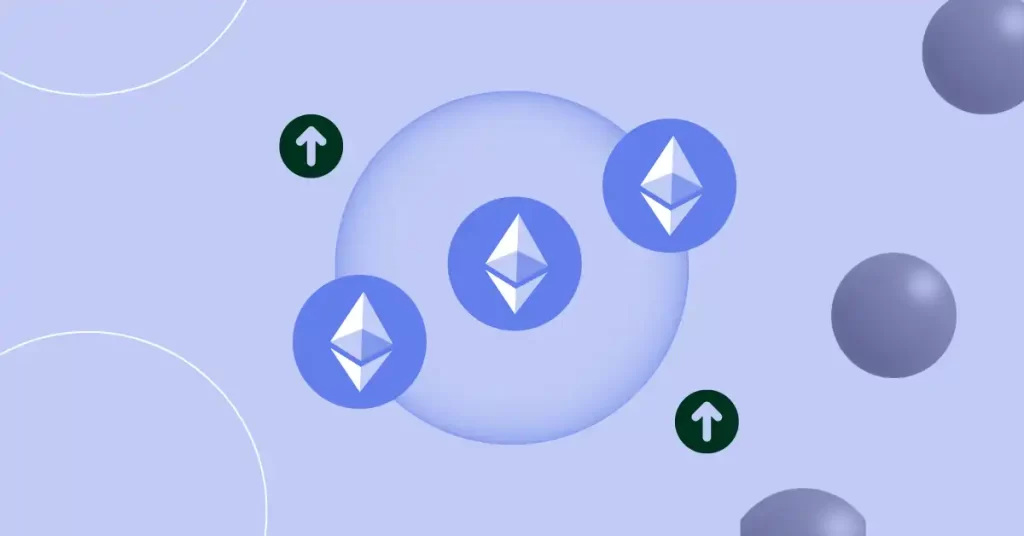ARTICLE AD BOX

The post Is Ethereum Truly Decentralized? : Shocking Allegations Against ICO and Mining Practices appeared first on Coinpedia Fintech News
Ethereum is the pioneer blockchain platform ranked second to Bitcoin and has often been termed a decentralized system. However, with recent revelations through Truth Labs in the context of the larger EthGate scandal, some pretty serious questions arise as to the kind of decentralization that Ethereum really has.
Detailed analyses of ICO transactions, mining rewards, and significant holders will be used to illustrate the integrity of Ethereum’s decentralized claims.
ICO Transactions and Alleged Fraud
Truth Labs accused Joseph Lubin, the co-founder of Ethereum, of engaging in fraudulent activities that dwarf those of Bernie Madoff. In a series of explosive posts, they exposed several Bitcoin and Ethereum addresses that were said to belong to Lubin during the ICO of Ethereum. According to Truth Labs, “Joseph Lubin is a fraud, and has done more fraudulent activities than Bernie Madoff.”
BTC and ETH Addresses: Mapping the Network
In a bid to expose the purported deceit, Truth Labs provided a comprehensive list of BTC and ETH addresses. They claim that these addresses reveal a network of wallets used to manipulate the ICO process. For instance, BTC addresses like `14MDds8jsHcaLtX9yvsMeGvPo22dF3aPkT` and ETH addresses like `0x1b3cb81e51011b549d78bf720b0d924ac763a7c2` were among those highlighted.
Mining Rewards and Centralization Concerns
Truth Labs further alleges that the Ethereum team accumulated over 2.5 million ETH in mining rewards prior to 2018, using nine different mining pools. This accumulation strategy raises questions about the fairness and decentralization of Ethereum’s mining processes. Truth Labs stated, “Using 9 different Mining Pools, the Ethereum Team secretively accumulated even more ETH, dominating the majority share of ETH rewards given out by each of these Mining Pools.”
Liquidity and Exchange Transactions
The Ethereum team allegedly used huge amounts of ETH for liquidity via Bitcoin Suisse’s wallets, and they favored Bitfinex for their transactions. The strategic maneuvering suggests a concerted effort to control and benefit from Ethereum liquidity and trading.
The EthGate Scandal
EthGate refers to the growing controversy and scrutiny surrounding Ethereum’s initial coin offering and further operations. Serious allegations of centralization, fraud, and manipulation have emerged. The scandal has shaken the cryptocurrency community, calling into question the foundational principles of Ethereum and its leadership.
EthGate encapsulates different charges, including the manipulation of Ethereum’s ICO, the centralized accumulation of mining rewards, and the strategic control of liquidity and trading operations. The scandal expresses potential ethical and legal breaches by the founder of Ethereum and other influential figures in the ecosystem.
Key Figures and Holdings
As of February 22, 2024, Vitalik Buterin, another founder of Ethereum, holds 245.8K ETH and is the largest individual holder. At the same time, Rain Lohmus owns 250K ETH but can’t access it because of lost private keys. Justin Sun of Tron reportedly holds $2.5 billion in Ethereum, but Sun has publicly denied those claims.
Coinbase holds over $20 billion in Ethereum, which means over 5% of the total supply. This concentration of holdings among major exchanges and individuals further challenges Ethereum’s decentralized status.
Possibly, Truth Labs’ Revelations Relate to ETHGate Scandal
Truth Labs’ detailed exposé is relevant in the bigger context of EthGate, providing even more specific examples and evidence of how Ethereum’s founding team might have gamed the process of ICO and mining rewards for their own benefit. It suggests that the team had control over the distribution and accumulation of ETH in opposition to the decentralized ethos that Ethereum is advocating.
Truth Labs’ revelations magnify issues at the heart of EthGate. The allegations suggest that Ethereum’s leaders were not just passive participants but active orchestrators in consolidating power and wealth within the network. By unveiling the complex web of wallet addresses and transactions, Truth Labs magnifies the extent of alleged collusion and centralization.
The revelations force one to reconsider Ethereum’s classification as a decentralized platform. The fundamental question, as posed by Truth Labs—”How can Ethereum be considered decentralized when they minted their own ICO, mined their own blocks, sold and ‘invested’ in the ICOs where Tokens were distributed on the ETH chain, accumulating even more ETH?”—seems to resonate deep within the context of EthGate.
All in all…
The revelations by Truth Labs raise a major question: How can Ethereum be considered decentralized when its founders were in control of the ICO, mining their own blocks, and trading and holding amounts of ETH? This is centralization and goes in sharp contradiction to the core principles of the decentralized nature of a blockchain.
.png)
 8 months ago
3
8 months ago
3








 English (US)
English (US)